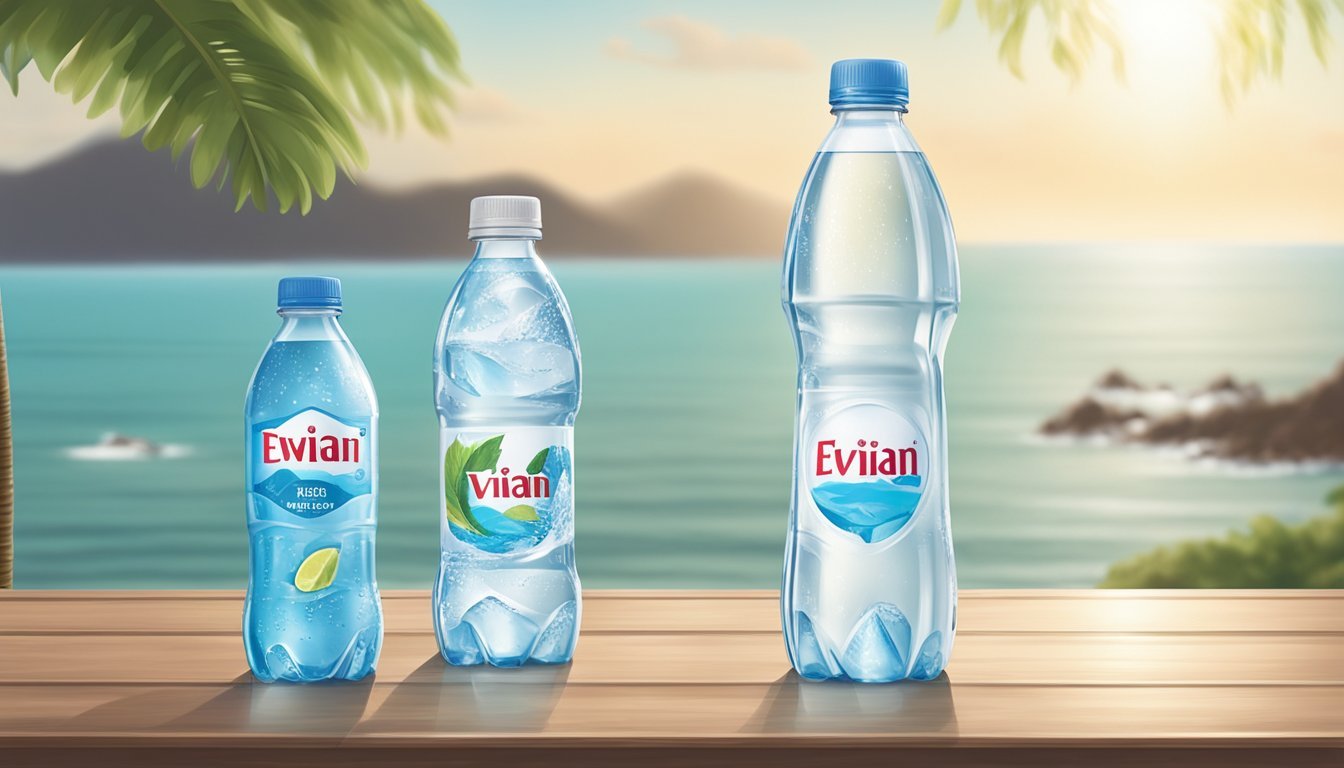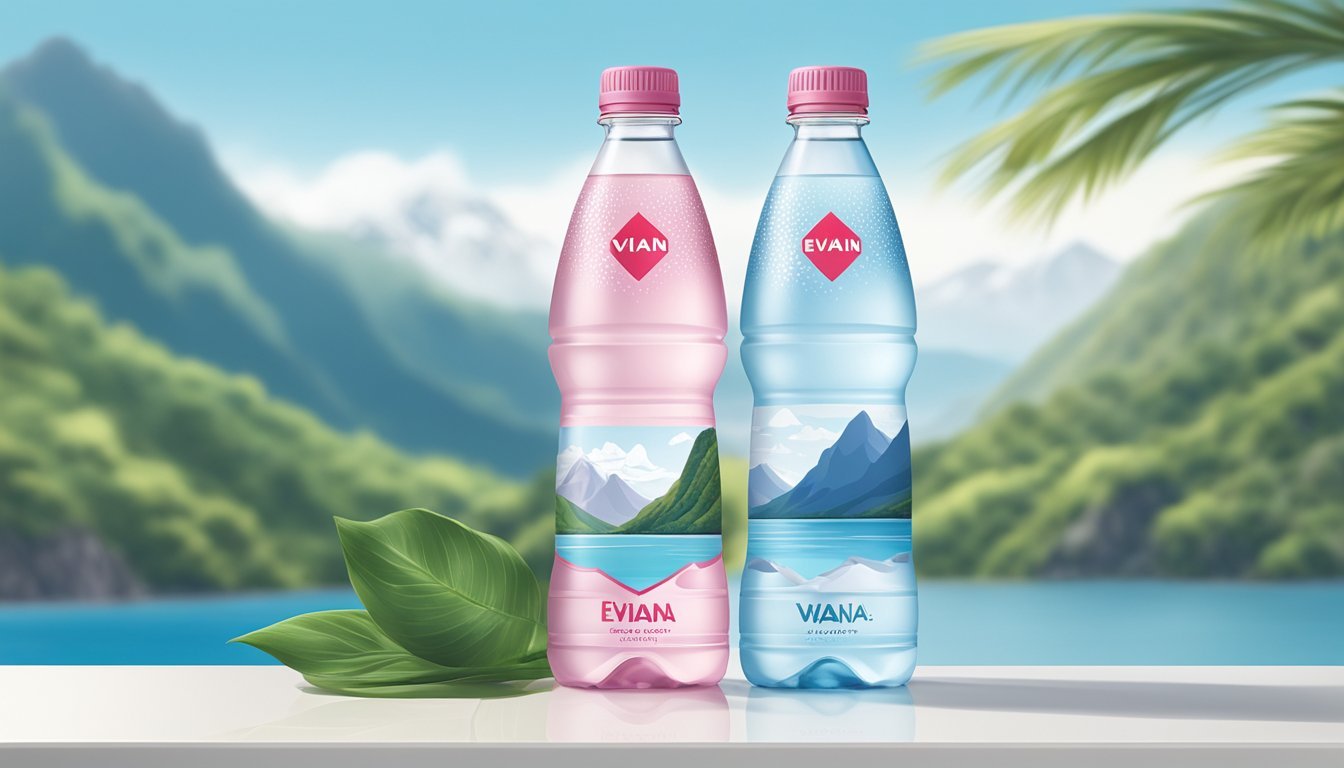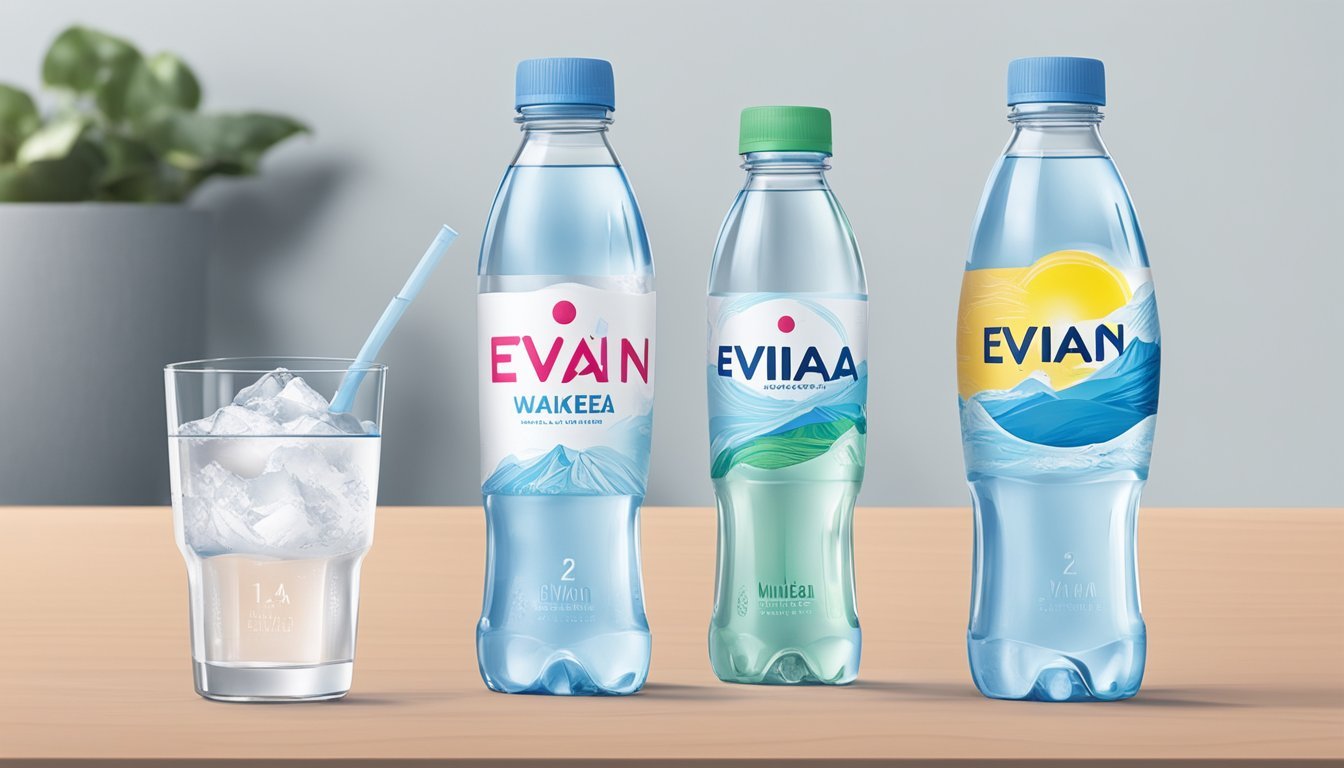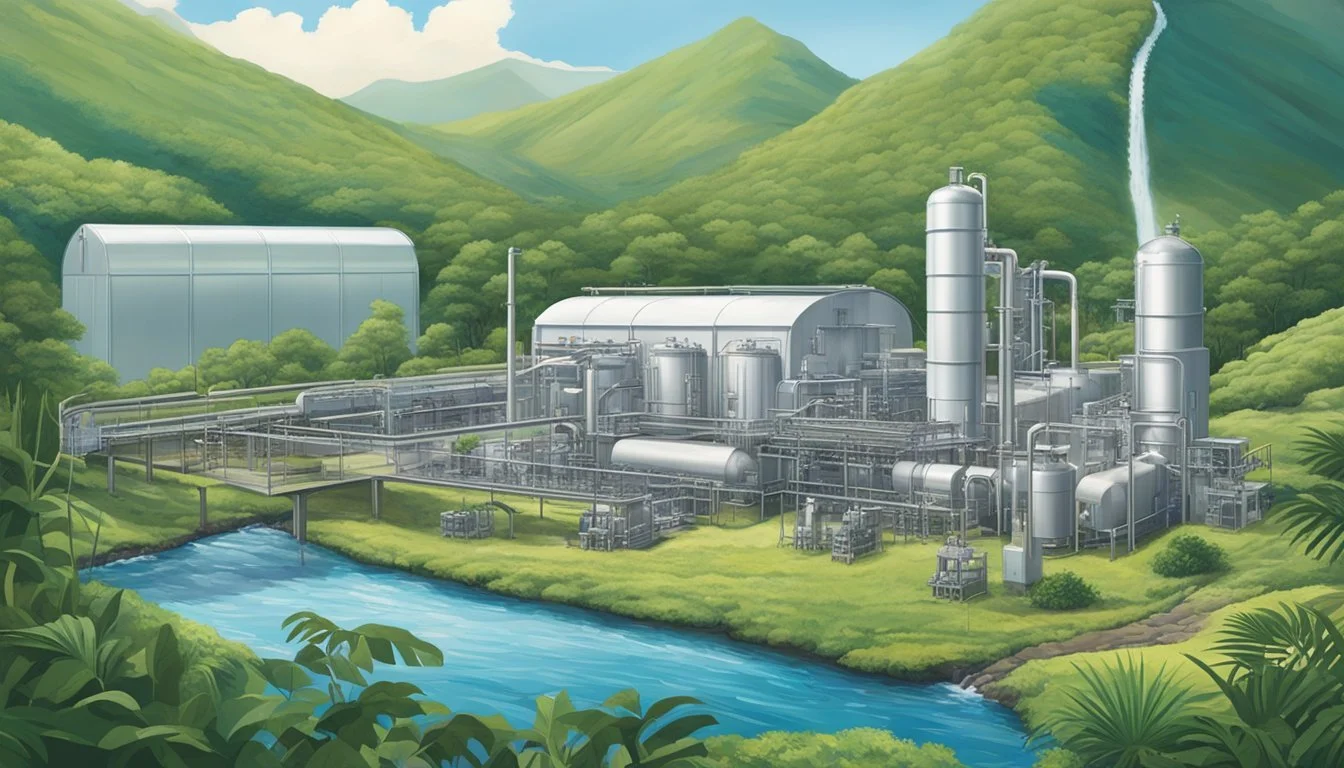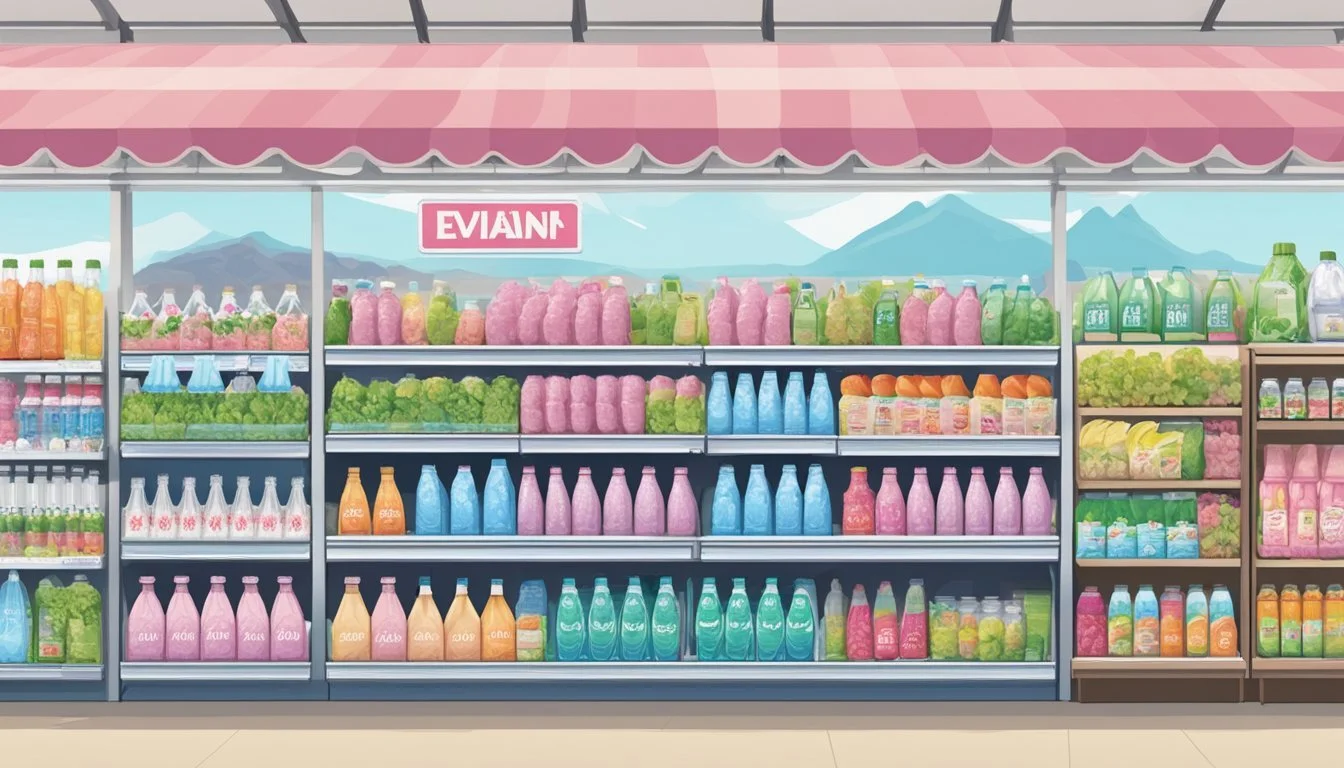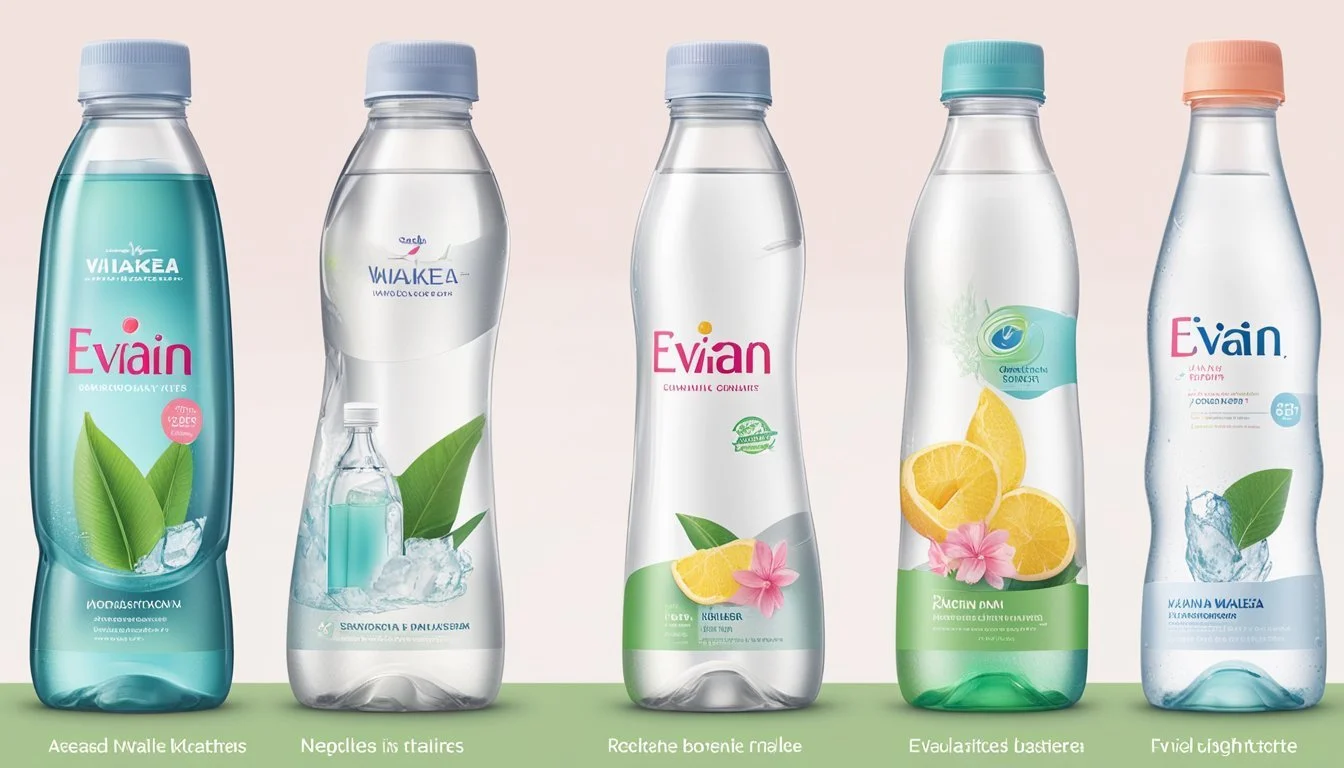Evian vs. Waiakea
Comparing Premium Bottled Water Brands
Choosing between Evian and Waiakea can be a tough decision for bottled water enthusiasts. Evian, sourced from the pristine French Alps, offers a refreshing taste with a natural mineral balance that has made it a staple for many looking for reliable hydration. On the other hand, Waiakea, hailing from a volcanic well in Hawaii, boasts naturally alkaline properties and a unique mineral composition that sets it apart from the competition.
Evian's long-standing reputation is built on its consistent quality and crisp taste, making it a favorite for those who prioritize purity in their drinking water. In contrast, Waiakea's commitment to sustainability, being the first US bottled water certified Carbon Neutral and donating a portion of revenue to nonprofits, appeals to environmentally conscious consumers.
The debate over which is better often comes down to personal preference and priorities. For those who value a classic, smooth taste and tradition, Evian stands out. Meanwhile, Waiakea's eco-friendly practices and distinctive alkaline profile might win over those seeking a modern and sustainable option.
Understanding Bottled Water
Bottled water remains a popular choice for many, but it's essential to understand the different types, regulatory standards, and how it compares to tap water. Each type of bottled water has unique characteristics based on its source and treatment.
Types of Bottled Water
Spring Water originates from underground formations and flows naturally to the surface. It retains the minerals present in the source, providing a distinct taste and benefits.
Purified Water undergoes processes like distillation, deionization, or reverse osmosis to remove impurities and contaminants. It's typically sourced from tap water but is treated to ensure high purity.
Mineral Water must contain at least 250 parts per million of total dissolved solids, deriving its content from naturally occurring minerals. It is often chosen for its mineral content and potential health benefits.
Alkaline Water has a higher pH level, usually above 7. The alkalinity can come from natural sources or be achieved through ionization. Proponents believe it offers several health benefits.
Regulation and Safety
Bottled water in the United States is regulated by the FDA (Food and Drug Administration), which ensures safety and quality standards similar to those of the EPA (Environmental Protection Agency) for tap water.
Manufacturers must adhere to strict labeling, processing, and testing requirements. Compliance includes regular inspections of bottling facilities and rigorous testing for contaminants.
Despite these standards, consumers should remain mindful of potential safety issues, including those related to storage conditions and the presence of microplastics in bottled water.
Bottled Water vs. Tap Water
Tap Water is regulated by the EPA, which sets stringent safety standards for public water systems. It usually undergoes extensive treatment, including filtration and disinfection, to ensure it’s safe to drink.
Comparatively, bottled water can be more convenient and may offer distinct tastes due to the mineral content or purification process.
However, the environmental impact of bottled water, including plastic waste and carbon footprint, is a significant consideration. Tap water is generally more cost-effective and more environmentally friendly, provided the local water supply is safe.
Source and Origin
Evian and Waiakea are renowned for their unique sources, providing natural spring water from different parts of the world with distinctive qualities due to their origins.
Evian's French Alps Source
Evian's water comes from the picturesque French Alps, specifically from several natural springs near Evian-les-Bains. These springs are fed by rain and snow that seeps into the Alps, filtering through glacial sand over a 15-year journey.
This filtration process imparts Evian water with a unique mineral balance. The French Alps, known for their purity, contribute to Evian's slightly alkaline pH of 7.07. Moreover, the pristine environment of the Alps ensures minimal human contamination, maintaining the natural integrity of the water.
Waiakea's Mauna Loa Volcano Source
Waiakea sources its water from the Mauna Loa volcano in Hawaii. The water is naturally filtered through porous volcanic rock, enhancing its mineral content and resulting in an alkaline pH level of 8.8. This volcanic filtration process also infuses the water with beneficial electrolytes.
Mauna Loa’s volcanic landscape, remote and untouched, ensures a pure source. Waiakea’s commitment to sustainability includes certifications like Carbon Neutral, indicating a lower environmental impact. The origin from an ancient Hawaiian volcano gives Waiakea water unique properties cherished by those seeking both quality and sustainability.
Composition and Quality
The composition of bottled water is crucial for gauging its health benefits, purity, and taste. This entails analyzing its mineral content, pH levels, and potential contaminants.
Mineral Content Analysis
Evian water is famed for its rich mineral composition. Key minerals include calcium (80 mg/L), magnesium (26 mg/L), and sodium (6.5 mg/L). This balanced mineral content offers a subtly sweet and smooth taste. Additionally, Evian water contains silica (15 mg/L), contributing to its velvety texture.
Waiakea water taps into Hawaii's volcanic sources. Its mineral profile boasts high levels of silica (32 mg/L), which enhances its smoothness. Waiakea also contains calcium, sodium, potassium, and magnesium, but in slightly lower amounts than Evian. This composition supports its naturally alkaline nature.
pH and Alkalinity
Evian water has a neutral to mildly alkaline pH, sitting at approximately 7.2. This is effective for maintaining balanced bodily pH. Its stable pH ensures that it neither heavily neutralizes nor creates acidity.
Waiakea, however, stands out with its high alkaline pH of 8.8. This high pH helps neutralize excess acid in the body. The naturally occurring alkalinity of Waiakea is attributed to its volcanic filtration process, which makes it beneficial for hydration and supporting bodily functions.
Presence of Contaminants
The purity of bottled water is paramount. Evian’s source in the French Alps ensures low levels of contaminants, with rigorous testing confirming the absence of harmful substances like lead, heavy metals, chlorine, and PFAS chemicals.
Waiakea water also emphasizes purity, being certified Carbon Neutral and regularly tested for contaminants. It assures consumers of its clean profile by implementing strict filtration processes that exclude harmful contaminants, including toxic chemicals and heavy metals. Additionally, Waiakea prides itself on low fluoride and free from chlorine content, enhancing its safety for consumption.
Health and Hydration
Evian and Waiakea are both celebrated for their distinct health benefits and hydration properties, making them popular choices in the bottled water market.
Hydration Benefits
Evian is sourced from the French Alps and is renowned for its natural purity. It is marketed as a hydrating option, suitable for daily consumption. The water's balance of minerals such as calcium and magnesium contributes to effective hydration and supports overall bodily functions.
Waiakea, originating from Hawaiian volcanic sources, is often highlighted for its unique alkalinity with a pH range of 7.6 to 8.2. The alkaline nature can assist in better hydration by neutralizing body acids, potentially improving the body's water uptake. Additionally, it contains beneficial minerals that complement its hydration properties.
Electrolytes and Replenishment
Evian contains a solid balance of electrolytes like sodium, potassium, and calcium, which are critical for muscle function and nerve signaling. These electrolytes help in maintaining the body's fluid balance, making Evian an excellent choice for replenishing lost fluids during physical activities.
Waiakea excels in its mineral composition, including essential electrolytes such as sodium, potassium, and magnesium. These naturally occurring electrolytes contribute to Waiakea's hydrating and rejuvenating qualities. The electrolytes in Waiakea help replenish and maintain body's electrolyte levels, making it effective for hydration post-exercise or during extensive physical activities.
Taste and Palatability
Evian and Waiakea offer distinct taste profiles and consumer experiences, each appealing to different preferences. This section explores how these two brands fare in terms of taste, smoothness, and overall consumer reception.
Taste Profile Comparison
Evian water is renowned for its neutral taste, derived from its source in the French Alps. The water passes through layers of glacial sand, resulting in a smooth, mineral-rich profile. Consumers often describe it as crisp with a slight minerality, making it a favorite for those who prefer a subtle flavor.
Waiakea, sourced from Hawaiian volcanic rock, has a more pronounced taste. Its journey through porous volcanic rock imparts it with natural electrolytes and minerals. This results in a slightly sweet and smooth flavor, making it stand out among other bottled waters. The unique filtration process also enhances its natural alkalinity, adding to its distinct taste.
Brand Source Flavor Notes Smoothness Evian French Alps Neutral, Slightly Mineral High Waiakea Hawaiian Volcano Sweet, Mineral-Rich Very High
Consumer Preferences
Consumer preferences for these two brands often reflect their taste profiles. Evian appeals to those who enjoy a classic, unadulterated water experience. Its neutral profile is ideal for pairing with meals or enjoying on its own, and it's often praised for consistency in taste.
Waiakea attracts consumers looking for a more robust and exotic flavor. The volcanic filtration and added minerals provide a unique taste that stands out in blind taste tests. Its natural alkalinity also appeals to those seeking a health-conscious option with potential benefits like improved hydration and a balanced pH.
Key Points from Consumer Preferences:
Evian: Preferred for its clean, crisp, and consistent taste.
Waiakea: Favored for its rich, slightly sweet flavor and added health benefits.
Consumers choose between Evian and Waiakea based on their desired taste experience and health considerations, with both brands delivering quality bottled water options.
Environmental Impact
Evian and Waiakea focus on sustainability and environmentally friendly practices in their approach to bottling water. Each brand employs different strategies to reduce its carbon footprint and enhance its eco-friendly credentials.
Bottling Process and Sustainability
Waiakea sources its water from a volcanic well in Hawaii and bottles it at a facility running on 100% renewable energy. They use high-grade, 100% recycled plastic for their bottles, reinforcing their commitment to sustainable practices.
Evian sources its water from the French Alps and emphasizes minimal impact on the surrounding ecosystem. They have recently committed to becoming carbon neutral by 2025. Their bottling facilities are equipped with advanced energy-efficient technologies to further reduce their carbon footprint.
Plastic vs. Glass Bottles
Both brands use plastic bottles, but with a focus on reducing environmental impact. Waiakea uses recycled PET (rPET) plastic bottles that are 100% recyclable, thereby significantly lowering waste and resource consumption.
Evian, while also utilizing plastic bottles, has committed to incorporating more recycled materials into their packaging. They have increased the percentage of rPET in their bottles and aim to make all their packaging 100% circular by 2025. Unlike some competitors, neither brand uses glass bottles, reflecting a preference for durable and recyclable plastic solutions.
Brand Environmental Initiatives
Waiakea has been certified Carbon Neutral and donates over 5% of its revenue to various nonprofits in Hawaii and worldwide, supporting environmental causes. Additionally, their distribution network focuses on minimizing transportation emissions by optimizing logistics.
Evian supports multiple environmental initiatives, including reforestation projects and water conservation efforts. They also engage in educational campaigns promoting sustainable hydration practices. By 2025, they aim to balance their carbon emissions, achieving a significant milestone in their environmental stewardship goals.
Brand Profiles
Evian and Waiakea are two prominent players in the bottled water industry, each offering unique properties and sourced from distinct locations. This section highlights these brands' key features and background.
Evian Water Brand Overview
Evian, a product of the French Alps, has built a reputation on its spring water's purity and natural mineral content. Owned by Danone, Evian sources its water from the Cachat Spring. This mineral water is renowned for its distinctive taste and balanced mineral composition, attributed to its journey through glacial rocks.
With a neutral pH of around 7.2, Evian water contains bicarbonates, calcium, magnesium, and silica. The brand emphasizes its 15-year filtration process through sand and rocks, ensuring a naturally balanced mineral profile. Evian bottles its water at the source, maintaining strict quality control processes.
Waiakea Water Brand Overview
Waiakea water, sourced from the Mauna Loa volcano in Hawaii, stands out for its naturally alkaline properties and sustainability efforts. With a pH range of 7.6 to 8.2, this water contains a rich mix of electrolytes and minerals such as calcium, magnesium, and silica. The volcanic filtration process imparts a silky texture and unique taste.
Waiakea is notable for its eco-conscious practices. It is the first U.S. bottled water certified Carbon Neutral and donates 5% of its revenue to nonprofits. Bottled at the source, Waiakea emphasizes purity and freshness, promoting a sustainable and health-focused image.
Market Presence and Accessibility
Evian and Waiakea compete in different ways when it comes to market presence and accessibility. Evian is widely recognized globally, while Waiakea has carved a niche with its sustainability approach.
Availability in Grocery Stores
Evian is a familiar name in grocery stores across the United States and many other countries. It's commonly found in major retailers like Walmart, Target, and Kroger. This widespread availability makes it a convenient option for many consumers.
Waiakea, while gaining in popularity, has a more limited presence compared to Evian. Found primarily in specialty health food stores and some major retailers, their focus on sustainability appeals to a specific market segment.
Cost Comparison
Evian often comes at a premium price due to its reputation and extensive distribution network. A standard 1.5-liter bottle often ranges from $1.50 to $2.00.
Waiakea, marketed as a premium water with volcanic filtration, also carries a higher price. The cost for a liter generally falls between $2.00 and $3.00. The price reflects its unique sourcing and environmental initiatives.
Brand Price per Liter Retail Availability Evian $1.50 - $2.00 Widely available in major stores Waiakea $2.00 - $3.00 Limited to health stores and online
Both brands target consumers willing to pay more for quality and unique attributes, but availability and cost can influence purchasing decisions.
Purchasing Considerations
When choosing between Evian and Waiakea, it is essential to consider factors such as product authenticity and making an informed choice about their unique characteristics like pH levels, purity, and environmental impact.
Identifying Fake or Substandard Products
Consumers need to be vigilant about fake or substandard bottled water products. Always check for certifications and authenticity seals on the packaging.
Evian bottles should have notches or markings indicating recycled PET plastic. For Waiakea, look for the certification indicating it as the first US bottled water to be carbon-neutral.
Pay attention to the packaging quality; genuine products usually have high-quality, sturdy bottles with clear labels. Substandard products may have blurry logos and misspelled words. Additionally, only buy from reputable sellers and verify batch numbers through official company websites if necessary.
Making an Informed Choice
Consumers should consider various attributes to make an informed choice. Evian is slightly alkaline with a pH of 7.07, slightly more than neutral, and comes from a naturally protected aquifer in the French Alps.
Waiakea water has a higher alkaline pH of 8.8, which helps neutralize body acidity and support various bodily functions. It undergoes significant filtration to maintain its purity.
Purification methods such as reverse osmosis and micro-filtration are critical. Evian relies on its natural aquifer, while Waiakea uses filtered volcanic water.
The environmental impact should also be considered. Evian aims to use 100% recycled plastic by 2025 and has made great strides with their current use of recycled PET.
Waiakea donates part of their revenue to environmental causes and prioritizes sustainable practices.
These considerations ensure that consumers choose the bottled water that best meets their hydration needs while aligning with their ethical and quality standards.
More About Evian
Evian vs Mountain Valley Spring Water: Which Bottled Water is Better?
Evian vs Richard's Rainwater: Which Bottled Water is Better?
Evian vs Whole Foods Italian Still Mineral water: Which Bottled Water is Better?
More About Waiakea
Icelandic Glacial vs Waiakea: Which Bottled Water is Better?
Mountain Valley Spring Water vs Waiakea: Which Bottled Water is Better?
Waiakea vs Kirkland Signature: Which Bottled Water is Better?
Waiakea vs Richard's Rainwater: Which Bottled Water is Better?
Waiakea vs Whole Foods Italian Still Mineral water: Which Bottled Water is Better?

